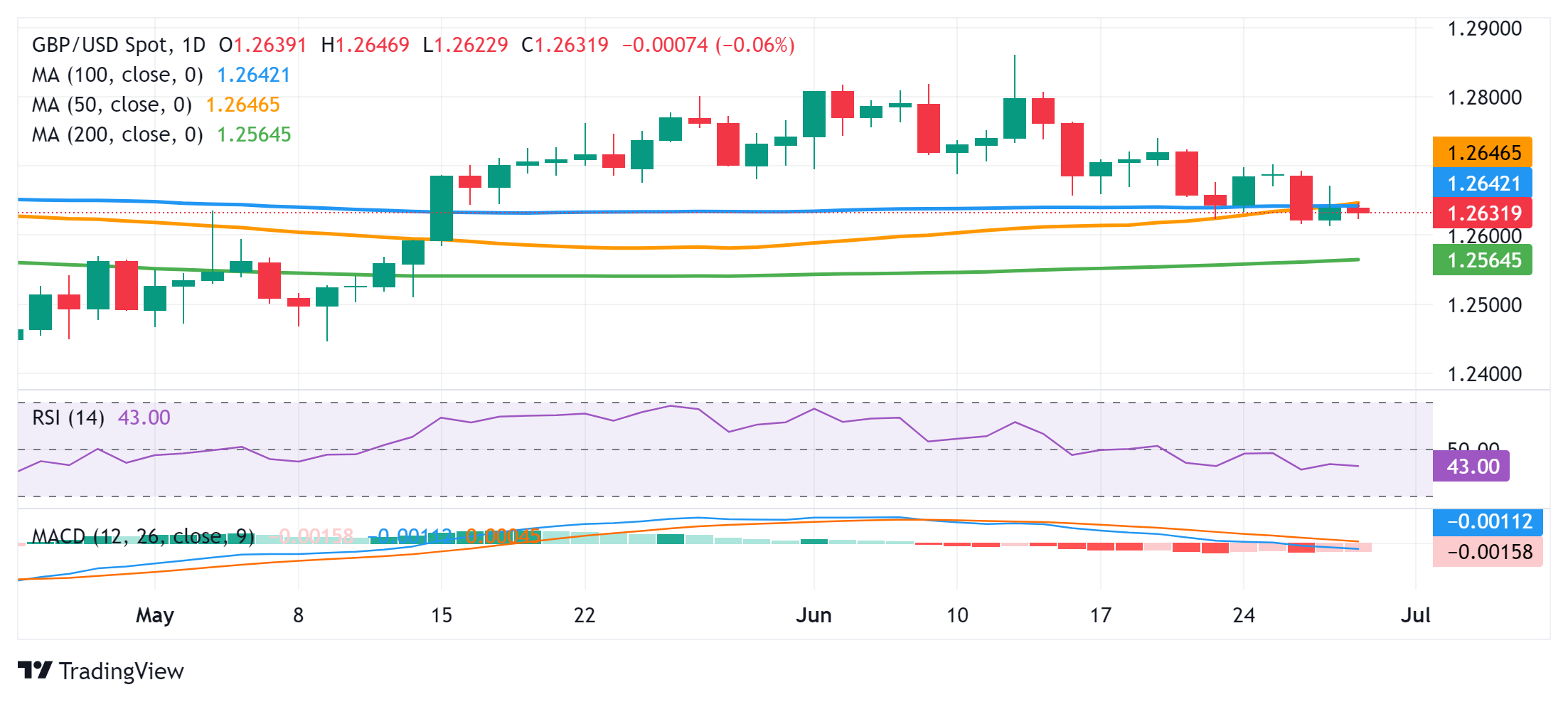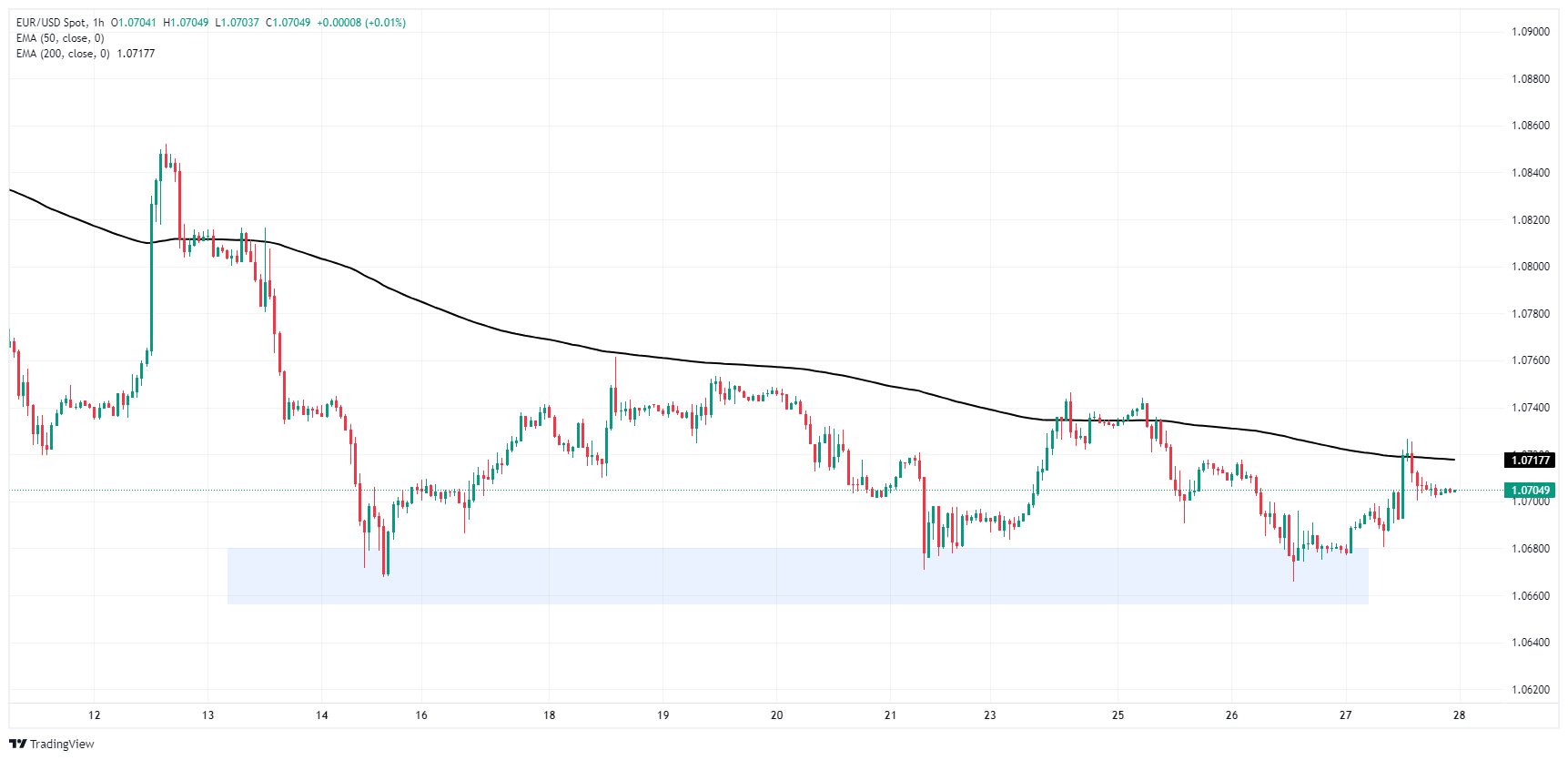As for the rest of the week, the market focus will be on the US Personal Consumption Expenditure data for May, which is seen as the Fed's favorite gauge of inflation. The data is expected to ease to 2.6% year on year from 2.7%. However, the level would be still above the reserve bank's 2% target.
Jittery times in June make euro and yen the weakest currencies
Published on 27/06/2024 - 8:15 GMT+2•Updated 8:45
In the group of G-10 currencies, the euro and the Japanese yen saw the sharpest decline against the US dollar. The EU's political turmoil and the BOJ's dilemma in its policy stance have weighed on both currencies.
June is a volatile month for the foreign exchange markets amid the jittery global economic and political dynamics. While risk-aversion sentiment caused the US dollar to strengthen against all the other G-10 currencies, the euro and the Japanese yen are the weakest fiat [currency] in this group.
The US dollar index, a key gauge of the dollar hit the highest level this year. The euro continued to decline amid political uncertainties, with its exchange rate against the US dollar falling to under 1.067 at a time on Wednesday, the lowest seen on 1 May.
More dramatically, the Japanese Yen weakened to the lowest level against the US dollar in 38 years, with the rate rising to 160 yen for 1 US dollar, a level last seen in 1986. In the meantime, the Japanese yen also weakened against the euro to an unseen level of 171.80 yen per euro.
The US dollar, also called the king dollar, may continue its momentum due to the hawkish stance of the Fed, the strong economy of the country, and investor cravings for AI stocks on Wall Street. At the same time, the euro may extend its weakness if the French elections bring more shocking news from the weekend and into July. The Japanese yen will not easily shrug off the fate of devaluation unless the Fed reverses the hiking cycle of the interest rate.
French turmoil may continue pressing on the euro
Euro will likely extend weakness against other major currencies amid Euronzone's political uncertainties, particularly the French turmoil. Some analysts believe that the euro may fall to parity with its US peer, the US dollar.
The first round of the French parliamentary election will take place on Sunday and the second round is due on 7 July. Poller IFOP, France's far-right National Rally, Marine Le Pen's group is seen leading with 34.5%, left-wing New Popular Front gains support of 28.5%, and Macron's Centrist party falls far behind with 21%. A win for the far-right group will potentially bring financial uncertainties to France, the most indebted country in Europe.
The biggest concern is whether the country will be able to serve its government debt repayment. Since Macron called for a snap election in June, the yield on the French benchmark 10-year government bond soared 20 basis points (0.2%) to 3.2%, increasing its sovereign repayment burden. The reason is that Le Pen called for a tax cut and a cut to the retirement age, which will lead to a reduction of government income. Her stance to restrict foreign investment and anti-migrant workers may also slow down economic growth. Far-right support also gained significantly in other EU countries, which could lead to instability in both the economic and political front. There are already concerns about the ECB's ability to issue joint debts for defence.
Additionally, the ECB is more dovish than the Fed, leading to the widening spread between interest rates and encouraging a carry trade in the US dollar against the euro.









No comments:
Post a Comment